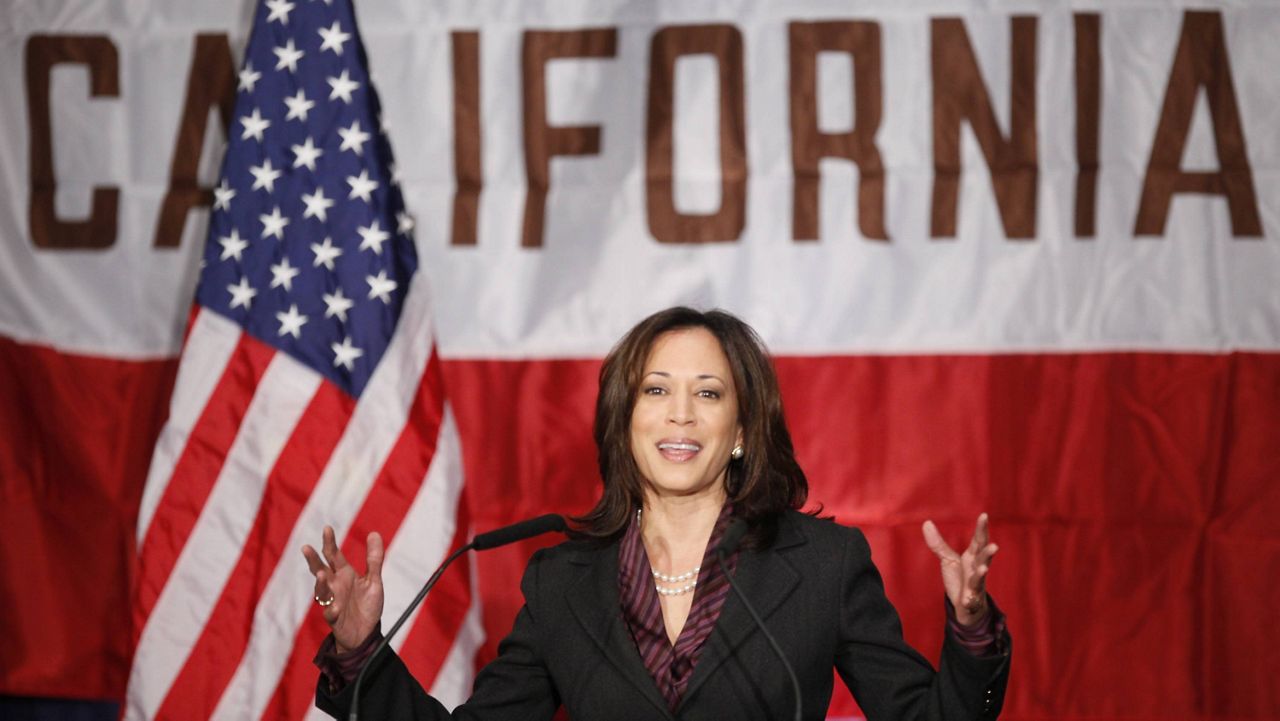After months of speculation, it’s finally official. On Tuesday, presumptive Democratic presidential nominee Joe Biden announced Kamala Harris as his vice presidential running mate, calling her “a fearless fighter for the little guy, and one of the country’s finest public servants.”
A former 2020 presidential candidate and current U.S. senator representing California, Harris is the first African American woman and South Asian American to be selected for the role, but who is she? We take a look back at her history in the Golden State to see how it shaped her as a politician before entering the national stage.
Now 55, Harris was born in Oakland on October 20, 1964. Her mother, Shyamala Gopalan Harris, is originally from India; a diplomat’s daughter, she moved to the United States at age 19 and earned a doctorate in nutrition and endocrinology from the University of California-Berkeley. Her father, Donald Harris, was a graduate student from Jamaica when he met Harris’s mother; he later became faculty in the economics department at Stanford University.
Harris is the oldest of two daughters her parents had before separating when she was five years old. Harris saw her father every other weekend, she said in a 2016 New York Times magazine profile, but she was raised by her mother in a shared house in one of Berkeley’s black neighborhoods. Harris’s mother was part of an intellectual community involved in the Bay Area’s Black political movement of the 1960s and ‘70s. That extended circle included the poet Maya Angelou and the civil rights leader Malcolm X, Harris told the Times.
In her 2019 memoir, The Truths We Hold, she described where she grew up as “a close-knit neighborhood of working families who were focused on doing a good job, paying the bills, and being there for one another.”
Harris attended Howard University in Washington, D.C., earning a double major in political science and economics in 1986.
“That was a very significant, important time for her, being at a university that was almost completely Black at a time of great social activism,” said Nathan Barankin, Harris’s former chief of staff when she served as California Attorney General. At the time, there was a global call for divestment from South Africa to force an end to its system of apartheid, which segregated the population based on race.
In addition to activism, Harris’ college years also provided her with a first taste of D.C. politics, Barankin said, when she interned with California Senator, and Senate Democratic Whip, Alan Cranston, of Palo Alto.
When she returned to California, Harris attended the University of California Hastings College of Law in San Francisco and earned her Juris Doctor in 1989. She passed the state bar in 1990.
Harris began her career with an internship at the Alameda County District Attorney’s office, where she developed a reputation as a talented prosecutor and was quickly recruited to join the San Francisco District Attorney’s office. In 2003, she was elected District Attorney of San Francisco – a position she held until 2011.
A self-described “progressive prosecutor,” Harris said she ran for San Francisco District Attorney to be there for both “the victims of crimes committed and the victims of a broken criminal justice system,” she wrote in her 2019 memoir, but she has been criticized for failing to hold police accountable for their actions and for maintaining policies that kept wrongfully convicted people behind bars.
Harris was elected attorney general of California in 2010 and was re-elected in 2014, serving through January 2017, when she was elected to replace Barbara Boxer in the U.S. Senate.
One of her most significant achievements while attorney general was winning $25 million from Wall Street to compensate homeowners who had lost their homes or were otherwise financially damaged during the 2008 financial crisis.
“There was enormous pressure on her to settle early, and on much weaker terms, than she ultimately obtained in that national mortgage settlement, but she refused,” Barankin said, adding that Harris insisted on touring California to see the hardest-hit regions during the foreclosure crisis to know what real homeowners were experiencing.
In 2016, in partnership with the California Air Resources Board, Harris helped negotiate a landmark deal that netted $1.18 billion for California out of a $14.7 billion settlement the German automaker Volkswagen was forced to pay as a result of its diesel emissions scandal.
“There were so many legal challenges to state environmental protection laws, where she was really the tip of the spear in defending things like California’s cap and trade law,” Barankin said. “She was committed and directed a lot of the office’s resources towards identifying and enforcing cases involving pollution in areas that were predominantly brown and Black.”
“Coming from California, being a woman of Black and Indian descent, she will be seen as more liberal than her policies actually are, which help the ticket,” said Caroline Heldman, an associate professor of politics at Occidental College.
“She is a California grrrl,” Heldman added, emphasizing the slang spelling. “She absolutely is presidential and powerful and empathetic at the same time. The fact that she is from here, that she stayed here for her education. She could have gone anywhere she wanted in the U.S., but she stayed here to serve her people: Californians.”



